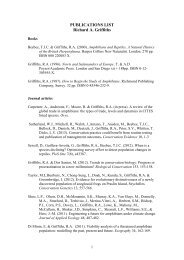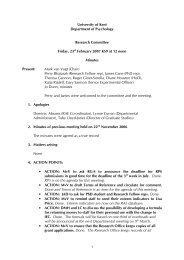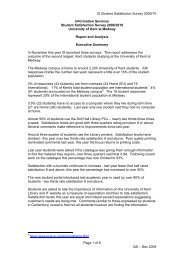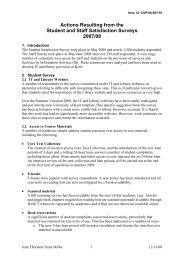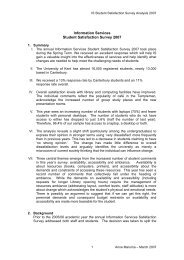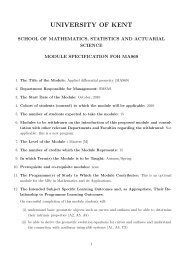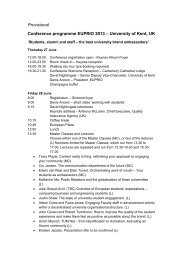cspdf, Job 181 - University of Kent
cspdf, Job 181 - University of Kent
cspdf, Job 181 - University of Kent
Create successful ePaper yourself
Turn your PDF publications into a flip-book with our unique Google optimized e-Paper software.
international community, not to celebrate them, but to uncover the political<br />
and moral implications <strong>of</strong> their ritualistic repetition. The Olympiad should be<br />
regarded as a survival <strong>of</strong> this nineteenth-century narrative that made Hellenic<br />
civilisation the core <strong>of</strong> European modernity. ‘Olympism’ is, in other words, the<br />
collective celebration <strong>of</strong> a metanarrative on European ancestral origins. The<br />
circulation <strong>of</strong> the Games in the community <strong>of</strong> nations impregnates them with<br />
meaning and transforms them into a relational value. It is precisely this<br />
relational dimension that Greek state representatives mobilised in their<br />
Olympic rhetoric.<br />
Identity in Antiquity/Antiquity as Modernity<br />
From the outset the Olympics and so-called ‘Olympism’, the philosophy <strong>of</strong> the<br />
event, were permeated by nationalist ideology. Although the origin <strong>of</strong> the<br />
modern Games is usually attributed to a Frenchman, Pierre Fredy, Baron de<br />
Coubertin (1863-1937), a similar proto-movement existed in Greece long<br />
before de Coubertin’s initiative.<br />
It began with a suggestion by a<br />
Constantinopolitan Greek poet, Panagiotis Soutsos (1806-1868), to Ioannis<br />
Kolettis, the Greek Minister <strong>of</strong> the Interior (Young, 1996: 17-18). The<br />
suggestion was focused around the establishment <strong>of</strong> a national day on which<br />
Greeks would celebrate the War <strong>of</strong> Independence (24 March), the ritualistic<br />
reverence <strong>of</strong> the Greek ‘spirit’ par excellence that has not lost its importance<br />
ever since. Although the national day was immediately established, it took the<br />
state over a decade to revive the Olympiad. In 1859, Zappas, a Greek<br />
merchant undertook the organisation <strong>of</strong> the first commercially based Olympic



